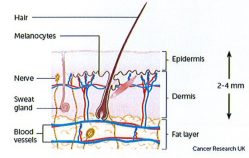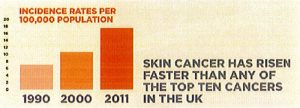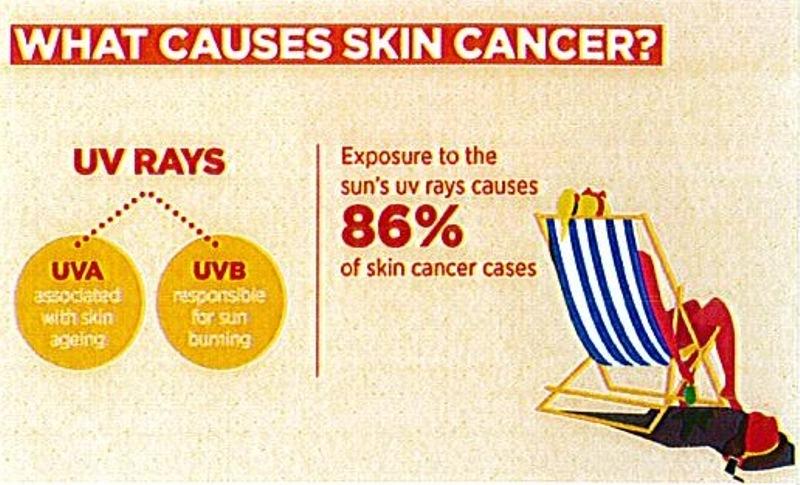Taking care of our skin is part of our 12 health essentials.As the sun comes out it is a particularly pertinent time to think about how we look after our body’s largest vital organ!! Here are some key facts:
WHAT IS THE SKIN?
 The skin is the largest human organ and it plays a vital role as your body’s first line of defence against physical, chemical and microbiological hazards. It does several jobs for us, it:
The skin is the largest human organ and it plays a vital role as your body’s first line of defence against physical, chemical and microbiological hazards. It does several jobs for us, it:
- protects the inside of the body from damage
- helps to keep our body temperature more or less the same
- gets rid of some body waste products through sweat
SKIN PROBLEMS
There are two main problems with the skin which we can help eliminate or reduce the risk of:
- Skin Cancer
- Dermatitis
SKIN CANCER
With summer on our doorstep we need to consider the controls we put in place to protect our skin from harmful exposure to the sun.

- Sun provides warmth, energy and vitamin D, but repeated exposure to ultraviolet radiation in sunlight can cause brown spots, sun burn, wrinkles and potentially skin cancer.
- Avoid tanning and UV tanning booths. According to the Skin Cancer Foundation, one indoor tanning session increases Melanoma (severe skin cancer) risk by 20 percent.
- Check your skin regularly. Pay attention to odd freckles, moles, and growths on your skin, and consult your doctor if you notice any changes for an early diagnosis of skin diseases and its treatment.
- Protect your children from the sun. Keep babies younger than 6 months old completely covered and in the shade.
- Positive lifestyle behaviours keep your skin healthy. Eat a well-balanced diet, drink lots of water, practice exercise and keep a regular sleep schedule. Avoid smoking, abuse of alcohol and caffeine because they cause dry skin conditions.
See the ‘5 Simple Steps Poster‘ to see how you can eliminate sun burn
DERMATITIS
Dermatitis is the term used to describe skin inflammation. Contact Dermatitis (also known as Eczema) occurs as a result of repeated contact with substances that can cause either irritation or specific sensitisation.
Irritants and sensitising agents can be chemical (detergents, soaps, medications, solvents), biological (bacteria, viruses, fungi), mechanical (friction, shearing, pressure) or physical (ultraviolet radiations, extremes temperature, dry atmosphere, moisture). Protect yourself at all times. Use your personal protective equipment and ensure you wash your hands thoroughly – see the HSE Guide to Hand Washing.
Pay special attention to the skin on your hands. Proper glove selection is essential. Be aware that some people may be allergic to material used in gloves, e.g. latex. Wearing gloves for long periods can make the skin hot and sweaty leading to skin problems; using separate cotton inner gloves can help prevent this.
Barrier creams may sometimes be used where gloves can’t practicably be used; they are designed to prevent and reduce the penetration or absorption of several hazardous substances into the skin.
Ensure its correct use.
AND finally, please display the three posters below:
- 5 Simple Steps Poster
- HSE Guide to Hand Washing
- Health Essential Poster on Taking Care of your Skin
